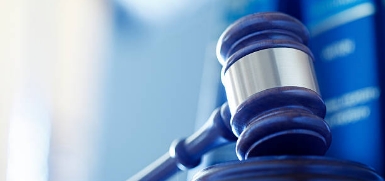A human being is birthed with inherent rights that cannot be alienated from him. These rights are enshrined in virtually every nation’s constitution and international human rights treaty in existence. They include the right to life, the right to freedom of movement, right to personal liberty among others. A vaccine is defined by the Merriam-Webster dictionary as a preparation that is administered to stimulate the body’s immune response against a specific infectious agent or disease: such as the preparation of genetic material that is used by the cells of the body to produce an antigenic substance.
The COVID-19 vaccine was developed within eleven months of the initial virus outbreak[1] by teams of medical and pharmaceutical practitioners all over the world. It was a collaborative effort between governments, international health organizations, and university research groups.
Since the development of the vaccine and subsequent successful trials, the world has begun to ease out of lockdown, and many places have resumed carrying out their normal course of business, with the introduction of various protocols to curb the spread of the virus. Protocols such as the mandatory wearing of face masks, washing of hands, and use of hand sanitizers before being granted access into a building and maintenance of social distancing at all times are stipulated by the World Health Organization[2].
The development of the vaccine, though seen as a breakthrough in the medical world, has been met with a great deal of hesitation by the public; many claiming that it is an international government conspiracy intended to harm the populace. This notion has only been further spurred by a 2016 study on Clinical Development Success Rates which found that between 2006 and 2015, the success rate of obtaining approval from Phase I to successful Phase III trials was sixteen-point two percent (16.2%) for vaccines. In 2020, that rate was reduced to just ten percent (10%).
Even if made available, a COVID-19 vaccine can only prevent outbreaks if a good number of individuals are vaccinated to achieve herd immunity. One legal tool for increasing vaccination rates is for the government to require it. Typically, a government has the power to impose certain obligations on its citizens that it believes are for the safety and well-being of the general populace.
The decision to ‘enforce’ the COVID-19 vaccine in some states has caused a public outcry on the legality of the decision. Countries such as Denmark, Austria, and Hungary were among the first to introduce the use of ‘health passes’. Health passes are digital or paper access cards that allow people who have been vaccinated to freely go into public areas such as restaurants, hotels, and sports centers. Many have seen this as a violation of the fundamental human right to freedom from discrimination.
The right to freedom from discrimination protects individuals from a government, body, or any authority making unjustified distinctions between human beings based on the groups, classes, or other categories to which they are perceived to belong. Discrimination occurs when a person is unable to enjoy his or her human rights or other legal rights on an equal basis with others because of an unjustified distinction made in policy, law, or treatment[3].
Economies-In-Transit such as Zimbabwe have faced international backlash[4] for attempting to make vaccination against COVID-19 mandatory when a large percentage of their population would not have access to the vaccine and hence be denied access to public facilities.
Legal liability for injuries caused by a COVID-19 vaccine differs depending on the country. In the United States, COVID-19 vaccine developers, manufacturers, distributors, and health care professionals who administer a vaccine—are generally immune from legal liability for losses relating to the administration or use of an approved COVID-19 vaccine, except for willful misconduct resulting in death or serious physical injury[5]. In addition to this, individuals who are harmed by a COVID-19 vaccine may seek compensation through the Countermeasures Injury Compensation Program. In Australia, the suppliers of the two government-approved COVID-19 vaccines receive indemnity against liability for rare side effects [6].
No-fault compensation refers to a compensation scheme based on the principle that injured persons are entitled to receive compensation for their injuries, without proving fault against the opposite party. This principle has only been executed in twenty-five countries in the world. Inability to obtain compensation for injuries obtained by a COVID-19 vaccine (which in some cases is required for individuals to keep their jobs), has been condemned by many as a breach of human rights. A citizen should not be harmed in the process of carrying out an obligation. Compensation, in this case, will cover such things as medical and living expenses. Denial of such compensation can be tied to a breach of the fundamental human right to life.
In conclusion, the enforcement of taking the COVID-19 vaccine still poses a breach of fundamental human rights. It must be noted that even taking conventional vaccines such as those for Yellow Fever, Measles, and other contagious diseases is not mandatory to carry on with regular business as a human being. The COVID-19 vaccine, albeit necessary, should not be mandatory.
[1] (1) TWiV 720: With vaccines, Offit is on it – YouTube This Week in Virology Podcast. Vincent Racaniello YouTube Channel. Accessed 13 August 2021.
[2] https://www.who.int/westernpacific/emergencies/covid19/information/transmission-protective-measures Accessed 13 August 2021.
[3] “What drives discrimination and how do we stop it?”. www.amnesty.org Accessed 13 August 2021
[4] OUTCRY OVER MANDATORY COVID-19 VACCINATION newsdzeZimbabweNewsdzeZimbabwe Accessed 13 August 2021
[5] Legal Issues in COVID-19 Vaccine Development. https://crsreports.congress.gov/product/pdf/R/R46399. Accessed 13 August 2021.
[6] Who pays compensation if a COVID19 vaccine has rare side effects – The University of Sydney Accessed 13 August 13, 2021







